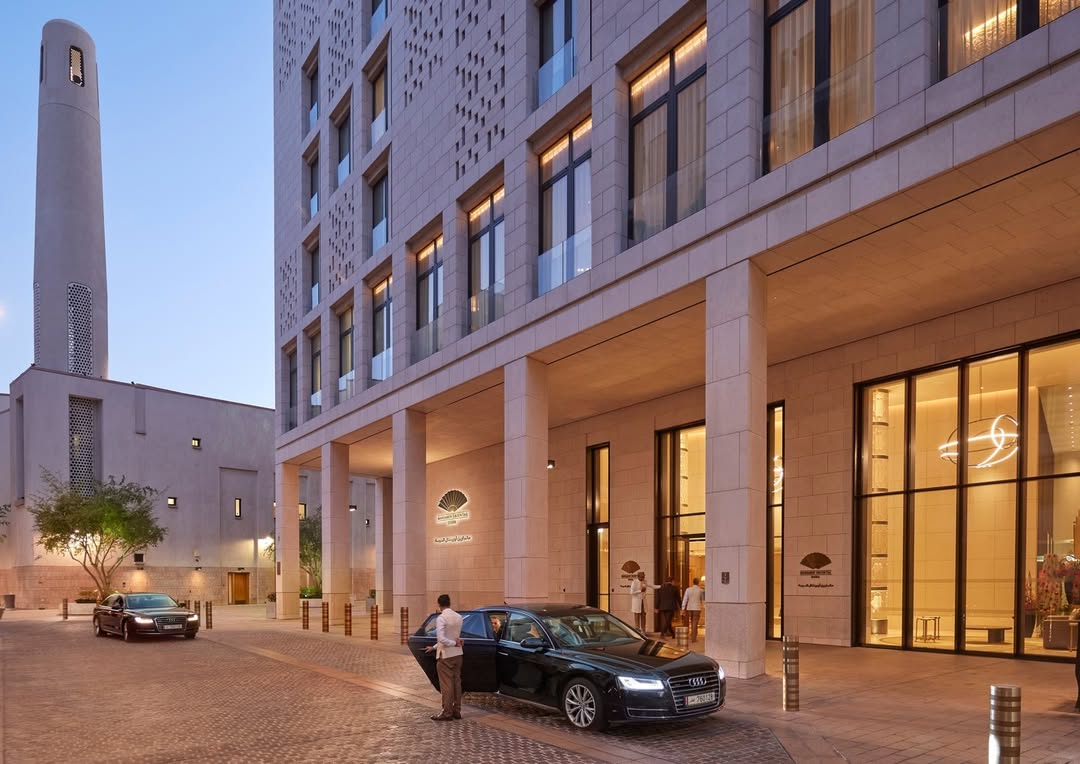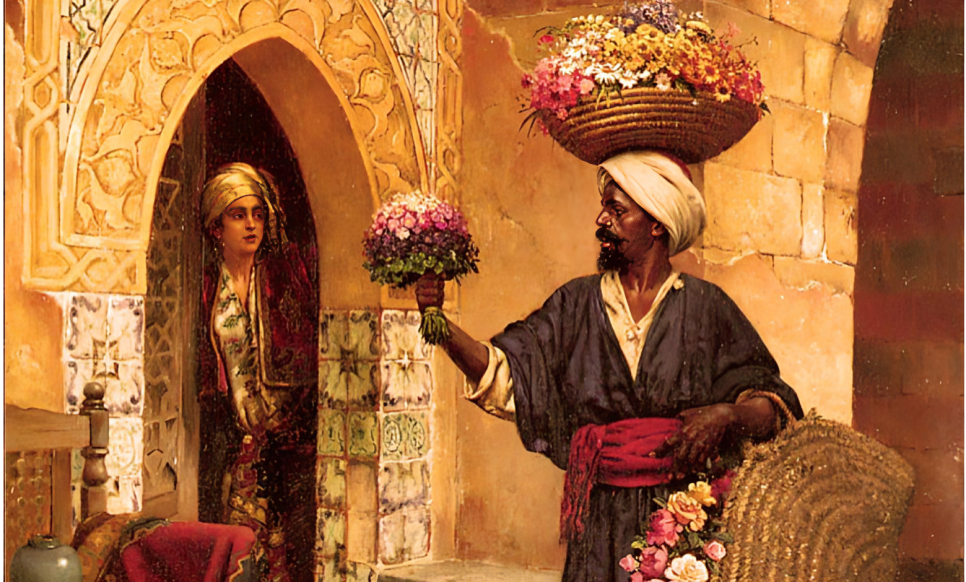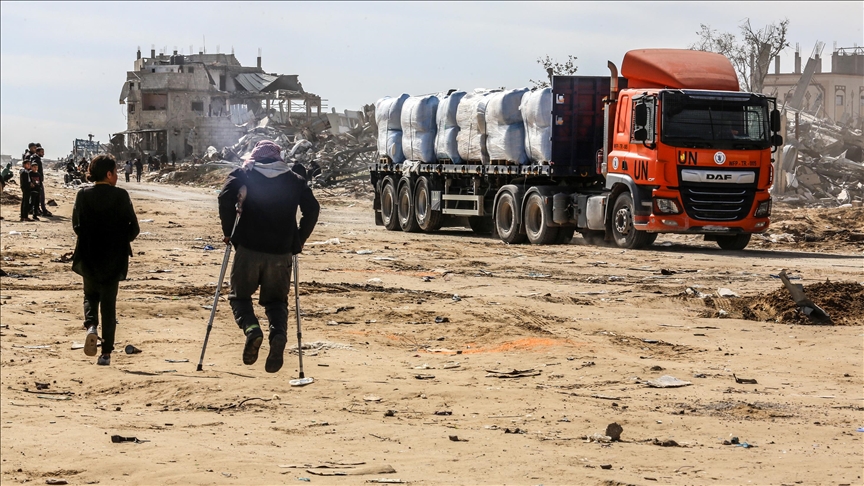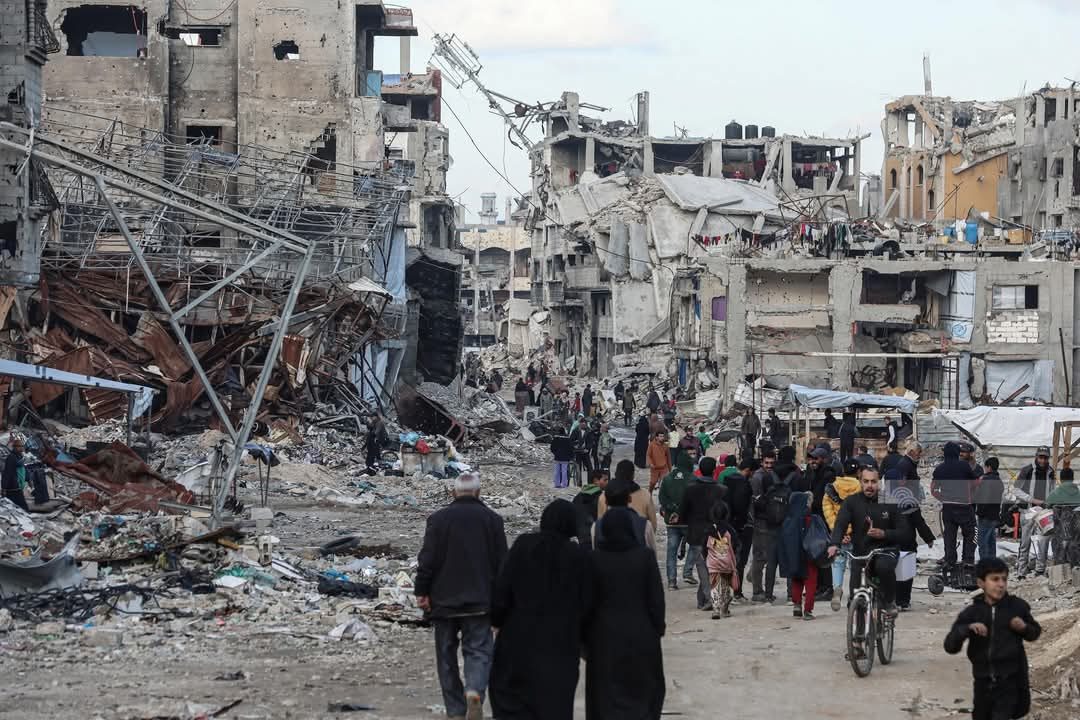The Qatari leader delved into numerous issues in his interview, from World Cup, Arab Spring, to Islam.
Qatar’s Amir Sheikh Tamim bin Hamad Al Thani slammed Israel’s occupation of Palestine in a major new interview with French outlet Le Point, the first such press appearance since becoming leader in 2013.
“Every country has the right to establish relations with the countries it wants. But what is normalisation with Israel? Seriously, are things normal in Israel? No!” Sheikh Tamim told France’s Le Point.
The amir has only previously given an interview to CNN in 2014 and CBS years later in 2017.
Published on Wednesday, the interview saw the Qatari leader take on various international and domestic issues, including normalisation with the occupying state of Israel, in the first such interview
Responding to a question over his view on the controversial Abraham Accord, which saw the normalisation of ties between Israel and a number of Arab states—Bahrain, the UAE, and Morocco, the Qatari amir highlighted the plight of Palestinians unable to return home.
“There are still occupied Arab lands, refugees who have not been able to return to their homes for over 70 years, Muslims and Christians, living under siege in Gaza,” said the amir.
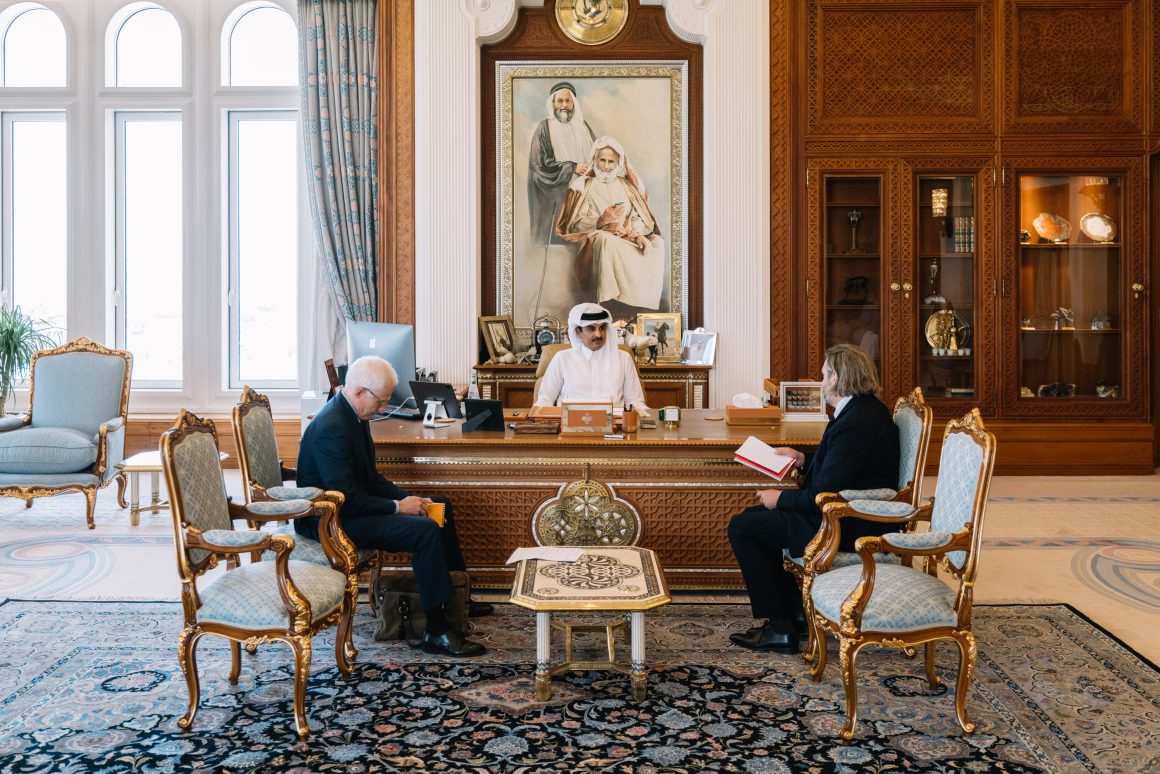
“We must find a peaceful settlement for the Palestinian people, we must give them hope, we must give them back their land. We talk with the Israelis, we bring aid to the people in Gaza and also in the West Bank. I believe in a two-state solution,” said the Qatari leader.
“Palestinians and Israelis should live side by side in peace. .Unfortunately, we are far from it,” noted the amir.
Middle East issues
Qatar’s amir also tapped into a range of other issues concerning the Middle East, including the region-wide revolutions of 2011, known as the Arab Spring.
Asked whether he finds time to sleep through the crises hitting the region, he said,”There are certainly many things that can prevent you from sleeping peacefully! But I am very proud of my people and all those who live in Qatar.”
However, he highlighted that “the most important issue is the Israeli-Palestinian question”.
“As long as it is not resolved, the region will unfortunately not be at peace. And there is also Syria, Libya, Yemen… This is why I am concerned for our youth,” he said.
With instability continuing to shake a number of Arab countries around the region, the amir noted that “the deep roots of the Arab Spring” remain.
“Poverty, unemployment, unemployed graduates… Have we solved these problems? No, on the contrary, they have worsened! If we don’t address them, the events that they caused may repeat themselves,” said amir Tamim.
As a Middle Eastern country with a key diplomatic role, Qatar believes in empowering youth globally to find a way out of such crises.
“Qatar promised to educate 10 million out of school children and we have surpassed that promise. Soon we will reach 15 million primary school children. We also need to provide jobs, opportunities, but also let them express their opinions and differences,” he said.
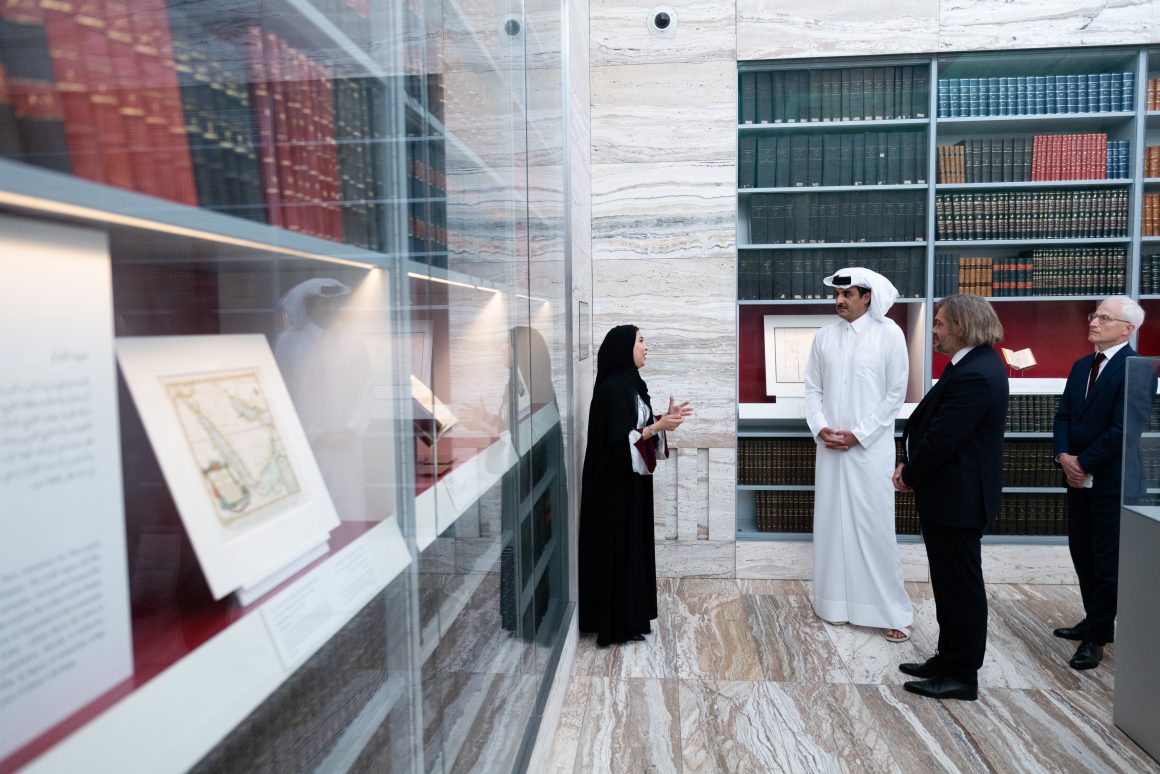
Looking back at Qatar’s significant role in promoting education, Sheikh Tamim used his country’s efforts in Tunisia, where tens of thousands have managed to start their own businesses thanks to such initiaives.
Qatar has also led efforts in providing aid to Syrian refugees forced out of their lands amid the ongoing war by the Bashar Al Assad regime. To date, Qatar refuses to normalise with the Assad regime for its crimes against civilians, despite some nations doing so.
“When the Arab League took the decision to exclude Syria, it was for a reason and that reason is still there, it has not changed,” said the amir.
While Sheikh Tamim expressed his willingness to participate in talks, “this is not the case at the moment,” he noted.
Discussing the Syrian refugee crisis, the amir called for resolving the key issue in Syria, while recognising Europe’s role in welcoming Syrian refugees.
“Why do we accept that a leader massacres his people and expels millions of refugees from his country? As human beings, is this acceptable? What’s more, when we know that these refugees are going to come to us and that this will create problems?”
Islam
As a leader of a Muslim country, Sheikh Tamim was asked about the future of Islam in light of the perceived divisions within its global community. Sheikh Tamim responded by listing the differences among Muslims and explaining the openness among the community.
“This is Islam. It is a religion of peace and as Muslims, we accept differences. We need to live together in a peaceful way. There have been tensions between religions, but it doesn’t help […] to pour oil on the fire,” he said.
With women’s rights being a central part of Islam, the amir stressed that men and women are equal in the eyes of God.
“The role of women is vital in our society. In Qatar, women outperform men at university. They make up 63% of students. In the workforce, it’s about 50/50. Within our government, we have three women ministers, they are doing a great job,” said Sheikh Tamim.
“Of course, we are aware that they [women] are discriminated against in the world, but we are totally against it,” he added.
Platform dialogue
As a heavyweight mediator, Qatar has long stressed the need for dialogue in order to reach peace across the world. Over the past years, Doha has served as a platform for dialogue between conflicting sides, in Chad, Afghanistan as well as other countries.
“Our foreign policy in Qatar aims to bring different points of view together, to help all parties who need it, and to play a role of facilitator, in the region and beyond. The world needs dialogue to solve its problems,” said the leader.
In June, Qatar hosted a round of indirect talks between the US and Iran in an effort to restore the 2015 nuclear deal, formally known as the Joint Comprehensive Plan of Action (JCPOA). Amir Tamim said that while no one officially approached Qatar for mediation, it continued talking to the Americans and Iranians.
“We are talking with our US allies, and we are talking with the Iranians, because Iran is our neighbour. It is in our duty and interest to do everything to bring the parties together and to encourage them in negotiating a peaceful settlement,” said Sheikh Tamim.
Commenting on Qatar and Iran’s ties, the amir said Tehran remains an important country that shares with Doha a “historical relationship” and a gas field. The leader renewed the importance of the entirety of the GCC to hold dialogue with Iran and settle their differences.
“Of course, there are differences, everyone has some, but we must sit down and talk about them, directly between us and the Iranians, without outside interference,” he said.
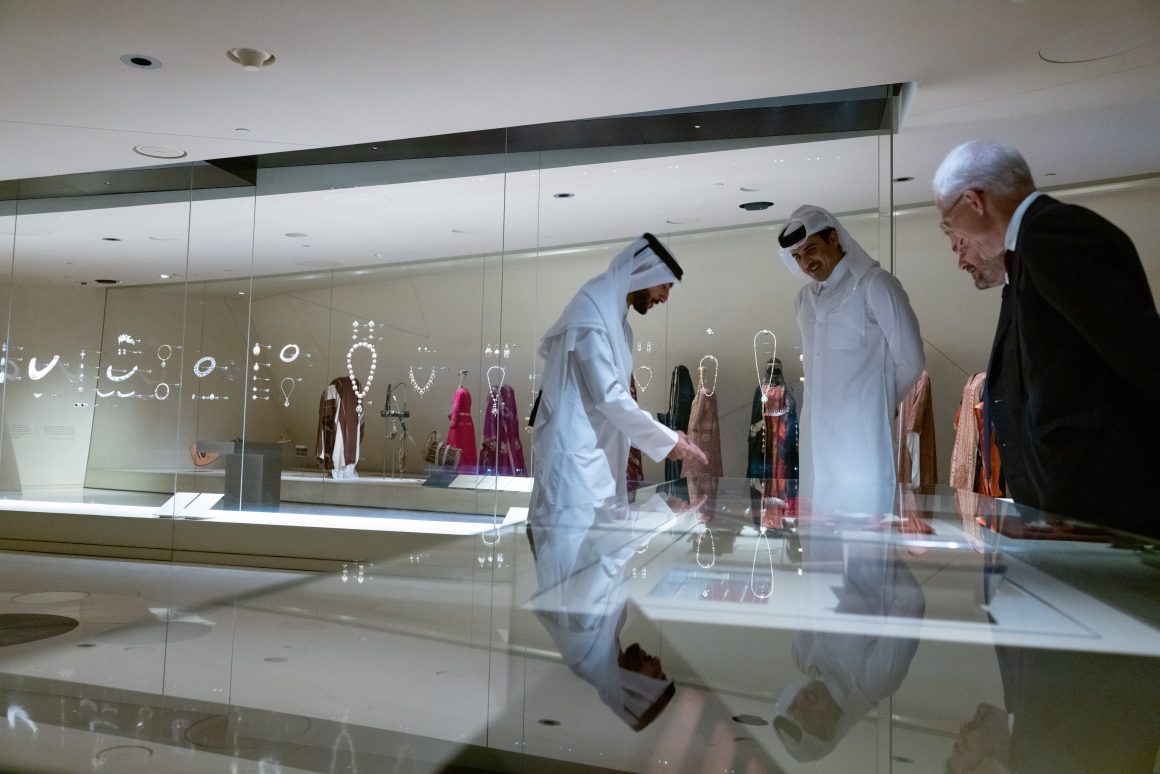
In 2017, Saudi Arabia, the UAE, Bahrain and Egypt had cut off ties with Qatar while subjecting it to an illegal air, land and sea blockade until 2021. The quartet defended the move by claiming Qatar supported terrorism, though Doha has vehemently denied and dismissed those allegations as baseless.
When asked about the region’s worst rift, the Qatari leader said he does “not want to talk about the past”.
“We have entered a new phase; things are moving in the right direction. We recognise that sometimes, we disagree. We are preparing for the future of this group of countries, the Gulf Cooperation Council, which is essential for unlocking the potential of young people throughout the region,” said amir Tamim.
Energy crisis
Qatar came under the global spotlight yet again this year amid the ongoing Russian war on Ukraine that has significantly contributed to the global energy crisis. European countries aiming to reduce reliance on Russian gas have turned to Qatar for liquified natural gas (LNG).
“Our country also plays an important role in the field of energy because we are a credible country in this sector. We are proud of the fact that we have always respected the agreements made over the past decades, including in the field of gas,” said the amir.
Qatar is currently on its way to dominate global LNG production, with the gas being a clean energy source.
“Gas is very important for the upcoming transition period. The war in Europe complicates the situation enormously, but the problem was there before. As for us, we supply our energy largely to Asia but also to Europe, through long-term agreements and also on the spot market,” said Sheikh Tamim.
World Cup
With Qatar being the first country in the Middle East to host the World Cup, it has come under criticism mainly by the west for violations against migrant workers.
Amir Tamim said that while his country took most of the criticism as advice to introduce historic reform, censure levelled against Qatar has come come from the lack of acceptance by the global community to accept Qatar’s Arab, Muslim identity.
“There is the second category of criticism, the one that continues no matter what we do. These are people who do not accept that an Arab Muslim country like Qatar is hosting the World Cup. They will find any excuse to denigrate us,” he said.
The Gulf state’s leader also welcomed football spectators, especially those visiting the country for the first time for the major sporting event.
“Everyone, no matter who they are, no matter what their origin or culture, is welcome. We want these visitors to learn about the differences between cultures, to discover the culture of Qatar, and we hope they will want to come back.”
Domestically, the amir highlighted Qatar’s “unique system” of governance and its openness to reform.
“I will never hesitate to make reforms that would be useful for my country and my people, if I think they are necessary. Because my role is to protect my people, to protect my country, and to make sure that this country is able to face whatever challenges come its way,” he said.


